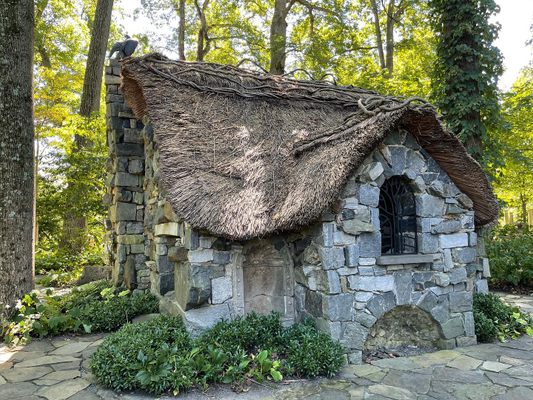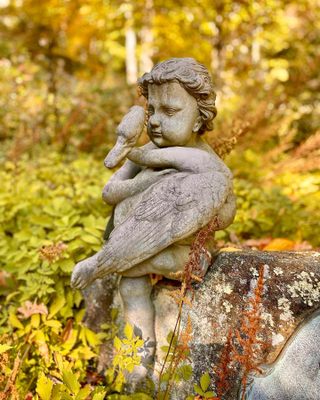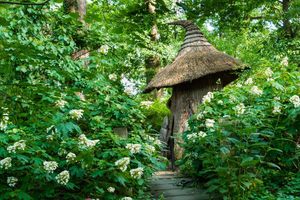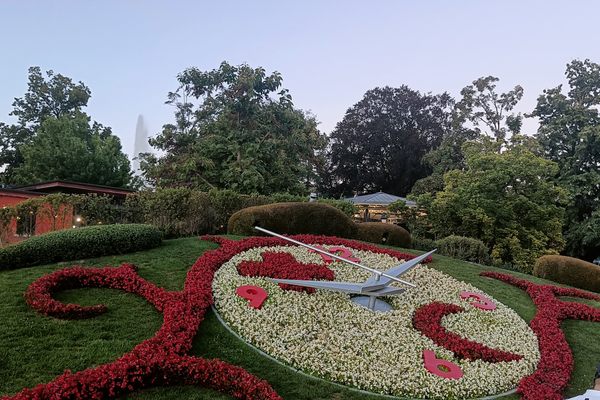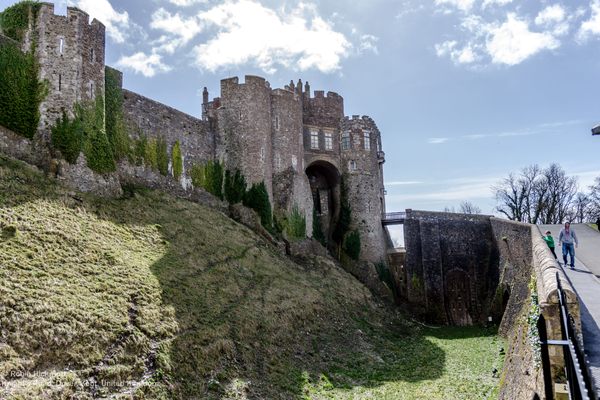About
The gardens that surround the Winterthur mansion in northern Delaware are an ode to horticultural precision, designed by some of the most renowned landscape architects. As visitors move away from the stately building, however, the grounds transition into the Wild Garden approach—more relaxed in nature, more playful in style. Just east of the mansion, the formalities evaporate entirely, giving way to a children’s garden that is as lauded by national institutions as it is beloved by Winterthur Gardens’ youngest visitors.
The Enchanted Woods is a three-acre fairy-tale garden designed to be a sylvan escape for budding nature lovers. The idea was conceived in the late 1990s, when most children’s “gardens” were essentially plastic playgrounds surrounded by foliage, but the Enchanted Woods took a different approach, letting the beauty of nature and the wonder of fairy tales encourage children into a state of play. The result is an immersive playscape punctuated by enchanting installations (but devoid of reference to commercial fairy tales) that puts children’s imaginations in the driver’s seat.
The woods are located on a flat hilltop full of mature oak trees and a thriving understory, all crisscrossed with a winding footpath. A “Bird’s Nest” made of woven branches offers elevated views of the labyrinth below; a “Faerie’s Cottage” resembles the home of a mythical creature, built in the traditional thatched-roof style, replete with large wooden beams, hearth, and stone walls; the “Gathering Green” is a grassy clearing with a maypole at its center, colorful streamers emanating from its head. Some installations are even interactive, like the “Forbidden Fairy Ring,” which, in the summer season, engulfs children in a cooling mist of vapor whenever they step into a ring of stone mushrooms.
The lore behind the woods holds that fairies brought refuse materials from around the estate to this hilltop patch to create a play place for children, which is at least partially true. The marble accents bedecking the Stone Garden are in fact a collection of stone artifacts purchased by Henry Francis du Pont shortly before his death in 1969 that sat for decades in storage. The “Upside Down Tree” is the remains of a dying oak cut from a separate section of Winterthur woodland. The “Tulip Tree House” is a shelter built from the hollowed-out trunk of a large poplar, perfect for hide-and-seek.
Related Tags
Published
March 10, 2023




